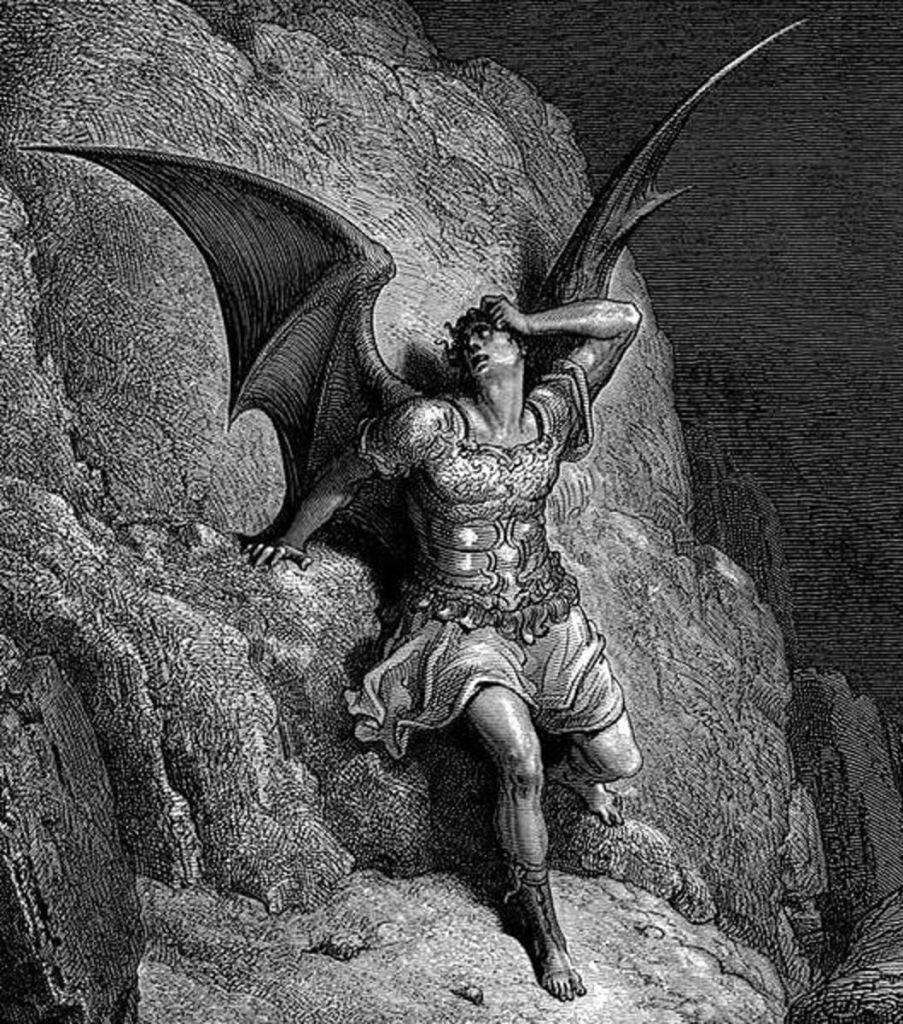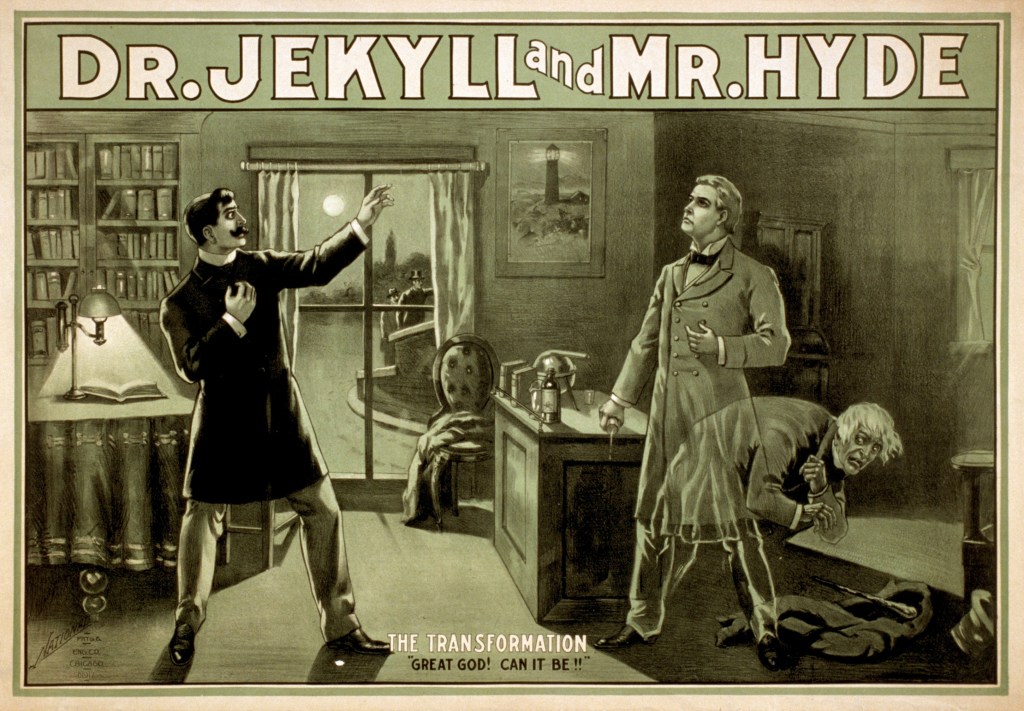Top Ten Tuesday was created by The Broke and the Bookish in June of 2010 and was moved to That Artsy Reader Girl in January of 2018. It was born of a love of lists, a love of books, and a desire to bring bookish friends together.
Previous Top Ten Tuesday Topics
- 30th August: School Freebie
- 6th September: Books I Loved So Much I Had to Get a Copy for My Personal Library
- 13th September: Books with Geographical Terms in the Title
- 20th September Bonus: Favourite Literary Queens
- 20th September: Books on my Fall TBR
- 27th September: Typographic Book Covers
- 4th October: Favourite Bookshops and Bookstores I’d love to visit
- 11th October: Books I Read on Vacation
- 18th October: Favourite Words
- 25th October: Black History Month
I love these lists when they turn to characters. I mean, for me, character is why I read: plot, setting, language, structure are all secondary to character and their relationships. But this week we are looking at unlikeable characters – villains perhaps – whom we cannot help but love.
For me, this rules out a lot of characters. I don’t want to look at those whom we love to hate – the Dolores Umbridge, Joffrey Baratheon, Miss Trunchball, Humbert Humbert – those characters who are irredeemable and whom we love to hate. No, what we are looking for are the characters whom we love because of their villainy.
As always, when we turn to character, Shakespeare often provides the model
Iago, Othello

Were I the Moor I would not be Iago.
In following him, I follow but myself.
Heaven is my judge, not I for love and duty,
But seeming so for my peculiar end.
For when my outward action doth demonstrate
The native act and figure of my heart
In complement extern, ’tis not long after
But I will wear my heart upon my sleeve
For daws to peck at. I am not what I am.
Iago never truly has a motive for his hatred of Othello or Cassio in the play, even though he tosses out any number of them – racism, sexual jealousy, professional rivalry… In fact, the more explanations he offers, the more hollow they become. He is just a villain, and his manipulation of the world around him is horrific to observe as he destroys utterly an innocent woman. And yet there is something glorious in his own self-knowledge of his villainy.
Edmund, King Lear
Thou, Nature, art my goddess. To thy law
My services are bound. Wherefore should I
Stand in the plague of custom, and permit
The curiosity of nations to deprive me
For that I am some twelve or fourteen moonshines
Lag of a brother? why “bastard”? Wherefore “base,”
When my dimensions are as well compact,
My mind as generous and my shape as true
As honest madam’s issue? Why brand they us
With “base,” with “baseness,” “bastardy,” “base,”
“base,”
Who, in the lusty stealth of nature, take
More composition and fierce quality
Than doth within a dull, stale, tired bed
Go to th’ creating a whole tribe of fops
Got ’tween asleep and wake? Well then,
Legitimate Edgar, I must have your land.
Our father’s love is to the bastard Edmund
As to th’ legitimate. Fine word, “legitimate.”
Well, my legitimate, if this letter speed
And my invention thrive, Edmund the base
Shall top th’ legitimate. I grow, I prosper.
Now, gods, stand up for bastards!

Again, the joyous self-knowledge is wonderful and matched with Shakespeare’s powerful poetry at its height, its most mythic and primal. And Edmund’s systematic undermining of his brother Edgar, his alliance with Regan and Goneril, his order to execute Lear and Cordelia are brutal, even if there is some attempt to repent…
Lady Macbeth, Macbeth

Come, you spirits
That tend on mortal thoughts, unsex me here,
And fill me from the crown to the toe top-full
Of direst cruelty. Make thick my blood.
Stop up th’ access and passage to remorse,
That no compunctious visitings of nature
Shake my fell purpose, nor keep peace between
Th’ effect and it. Come to my woman’s breasts
And take my milk for gall, you murd’ring ministers,
Wherever in your sightless substances
You wait on nature’s mischief. Come, thick night,
And pall thee in the dunnest smoke of hell,
That my keen knife see not the wound it makes,
Nor heaven peep through the blanket of the dark
To cry “Hold, hold!”
The ultimate femme fatale! Like Edmund, she rejects traditional rules and roles taking on nature or spirits to guide her, but Shakespeare adds in visceral imagery, through which she is able to steel herself to break her role as host, as subject, as friend to murder Duncan. Her vulnerability beneath it all, though, is much more potent: “Had he not resembled / My father as he slept, I had done’t” and “who would have thought the old man to have had so much blood in him?”
Satan, Paradise Lost
horrour and doubt distract His troubled thoughts, and from the bottom stir The Hell within him; for within him Hell He brings, and round about him, nor from Hell One step, no more than from himself, can fly By change of place

Who was it that suggested Milton was of Satan’s part, unknowingly? Certainly the language of the poem – which does paint Satan as self absorbed and without hope – decks him with the imagery of heroism. I recall his exploration into the unknown regions of Hell, forging a bridge as he went, in order to reach Earth. Yes, his intentions and the repercussions of that journey were “not great” for humanity but there is so much of the Romantic Byronic hero in him that it is no surprise that Blake and the Romantic poetry movement was so taken with him.
Marisa Coulter, His Dark Materials

Clearly, we cannot countenance the kidnapping and experimentation on children, but Mrs Coulter – and her monkey daemon – is exceptionally compelling as a villain. Cold, calculating, heartless.
And yet her capacity to love and her love for Lyra gave her a humanity and a sympathy that allowed Phillip Pullman to give her an incredibly beautiful self-sacrificial death.
It is perhaps telling that there is a direct line of descent from Paradise Lost through Blake to His Dark Materials…
Ianthe Tridentarius, Gideon the Ninth and Harrow the Ninth
The first of the necromancers in the test to reach Lyctorhood – and that process is horrific enough in its own right. And her assault on the other Houses necromancers is brutal.
We see a more sympathetic Ianthe in Harrow the Ninth, and an almost tender relationship with the broken and confused Harrow, and becoming reluctantly and ally and something close to a friend – but never one to be trusted

Cersei Lannister, A Song of Fire and Ice

Incest.
Brutal.
Paranoid.
Although she is far less competent in the novel than in the television series, she remains simultaneously repellent and fascinating.
Mr Hyde, The Strange Case of Dr Jekyll and Mr Hyde
Mr Hyde’s excesses were generally excised from the original manuscript by Robert Louis Stevenson’s wife which left us with a rather underwhelming trampling or a child and a brutal murder – we infer perhaps sexual excesses, homosexuality, drug use – the same vices that Dorian Gray indulges in perhaps.

Captain Ahab, Moby Dick

What makes Ahab so unlikeable? His monomania, his obsession with the whale, his willingness – his eagerness – to sacrifice his crew to enact his revenge. What makes him loveable? Melville’s excessive, Shakespearean characterisation and language – the scene where he hammers the coin into the mast is wonderful.
Long John Silver, Treasure Island
Yes, another Robert Louis Stevenson character! I loved this book as a kid – and thoroughly enjoyed re-visiting it recently. And Long John Silver was fantastic!
Yes, we have to accept that he is brutal and violent and a terrifying character… yet also utterly compelling and I think we do all share Jim’s grudging attachment to him by the end of the book:
Of Silver we have heard no more. That formidable seafaring man with one leg has at last gone clean out of my life; but I dare say he met his old Negress, and perhaps still lives in comfort with her and Captain Flint. It is to be hoped so, I suppose, for his chances of comfort in another world are very small.

And there we have ten utterly despicable characters – liars and cheats, murderers and dissemblers all – yet characters who we love perhaps despite those crimes, and in some cases because of them, because of their fulsome and utter commitment and their possession of some of the finest lines of poetry in the language.
It is, looking back, an odd mixture of the contemporary and the classical, but for that I make no apology! I look forward to seeing the characters that you might add to this list in the comments this week!
Upcoming Top Ten Tuesday Themes
November 8: Series I’d Like to Start/Catch up on/Finish
November 15: Favorite “Aww” Moments In Books (Share those sweet/cute moments in books that give you warm fuzzies.)
November 22: Thankful Freebie
November 29: Cozy Reads (Share books that give off a cozy vibe, whether through atmosphere, setting, or some other factor. Please tell us why they’re cozy for you, too!)
December 6: Freebie
December 13: Books on My Winter 2022-2023 To-Read List
December 20: Books I Hope Santa Brings This Year
December 27: Most Recent Additions to My Book Collection (What books did you get as presents this holiday season? Or what did you buy with gift cards?)



Love this list!! I haven’t read all of these books, but I can agree.
LikeLiked by 1 person
Cersei was a great pick!
LikeLiked by 1 person
A great list and pictures! I didn’t think about the classics!
Have a great week!
Emily @ Budget Tales Book Blog
My post:
LikeLiked by 1 person
I always turn to the classics!!
LikeLiked by 1 person
I need to read more classics really. I just turned to my Goodreads app which has a record of my recent reads!
LikeLiked by 1 person
I’ll admit, I’ve only seen Season One of the His Dark Materials TV show and found it kind of confusing, so I didn’t watch much more, I think I saw a few episodes of Season Two? But I did find Mrs Coulter a very intriguing villain.
My TTT: https://jjbookblog.wordpress.com/2022/11/01/top-ten-tuesday-392/
LikeLike
A great list! Shakespeare created so many compelling characters, whether they be funny or villainous.
Pam @ Read! Bake! Create!
http://readbakecreate.com/highest-rated-books-on-my-tbr/
LikeLiked by 1 person
Cersei!! Didn’t think of her, but you’re right. And I don’t know any Shakespeare, but I know OF the stories, and you’re right that good villains start there. Great, thoughtful list!
Terrie @ Bookshelf Journeys
https://www.bookshelfjourneys.com/post/ttt-unlikable-characters
LikeLiked by 1 person
I love that you included classics on your list! Those books became classics because of their awesome characters.
LikeLiked by 1 person
I do love a compelling character, even if they’re not particularly likable. They’re fun to read about, anyway!
Happy TTT (on a Wednesday)!
Susan
http://www.blogginboutbooks.com
LikeLike
[…] 1st November: Unlikeable Characters You Cannot Help But Love […]
LikeLike
[…] 1st November: Unlikeable Characters You Cannot Help But Love […]
LikeLike
[…] 1st November: Unlikeable Characters You Cannot Help But Love […]
LikeLike
[…] 1st November: Unlikeable Characters You Cannot Help But Love […]
LikeLike
[…] 1st November: Unlikeable Characters You Cannot Help But Love […]
LikeLike
[…] 1st November: Unlikeable Characters You Cannot Help But Love […]
LikeLike
[…] 1st November: Unlikeable Characters You Cannot Help But Love […]
LikeLike
[…] 1st November: Unlikeable Characters You Cannot Help But Love […]
LikeLike